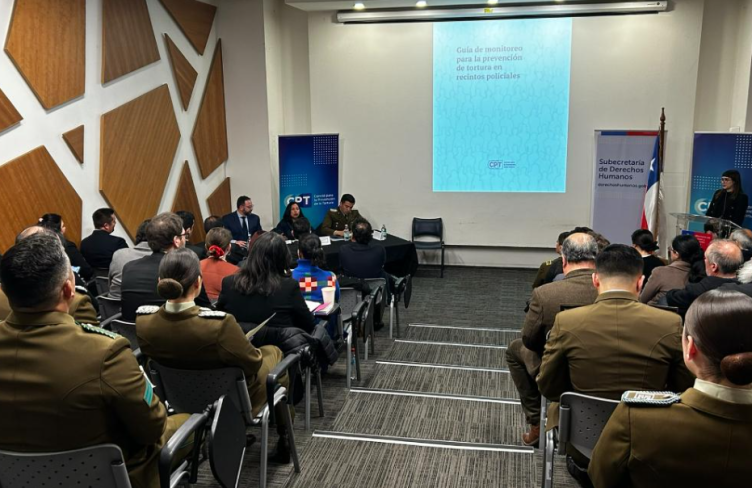From 19 to 23 September 2011, the APT was in Kathmandu, Nepal to hold a joint workshop with the Asia Pacific Forum (APF) on 'Preventing Torture: the role of NHRIs' for staff of six NHRIs (Afghanistan, Bangladesh, Maldives, Nepal, India, Sri Lanka) from South Asia. The workshop gathered 26 participants representing the six NHRIs. The workshop was co-hosted by the National Human Rights Commission (NHRC) of Nepal and aimed at strengthening the NHRIs capacities to carry out preventive detention monitoring.
'Visiting exercises' were carried out on the third day to two prisons and one juvenile centre. The overall objective of the 'visiting exercises' were for participants to get the opportunity to apply in practice the methodology of monitoring places of detention in order to draw lessons and increase their knowledge and skills.
The workshop was part of a pilot blended learning project on torture prevention for NHRIs, which had the aim of contributing to the implementation of the publication APT-APF-OHCHR publication 'Preventing torture: an operational guide for NHRIs'. The blended learning course comprised of a five week online learning course (11 July to 12 August 2011) and the four and a half day face to face workshop.
The methodology employed during the workshop was a combination of short presentation (for instance each NHRI presented one good practice), discussions and interactive exercises (such as role plays), aiming at participants learning through doing. Participants spent lots of time working in groups. The discussions encouraged the exchange of experience among participants.
The workshop also provided the opportunity to discuss the overall strategic plan of NHRIs and how to potentially incorporate a specific detention monitoring plan.
Participants debriefed and reflected on their practice, particularly the methodology applied in the two prisons and one juvenile centre. They identified together with APT and APF some key practices and issues that could be addressed in order to further improve the NHRIs work in conducting preventive visits. These include for instance interviewing techniques and follow up to preventive visits through drafting visit reports with recommendations and conducting follow up visits.
At the end of the workshop the participants drafted follow up points to work on torture prevention in particular preventive detention monitoring for their institution, which they are encouraged to present for actual adoption by their institution.



